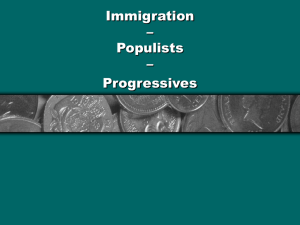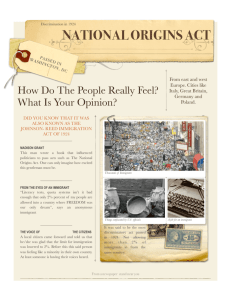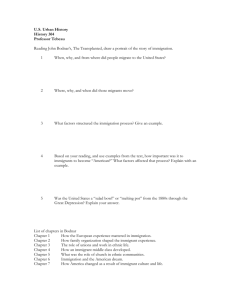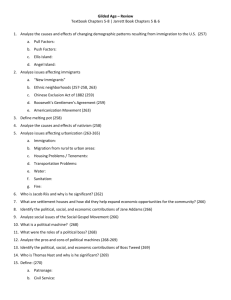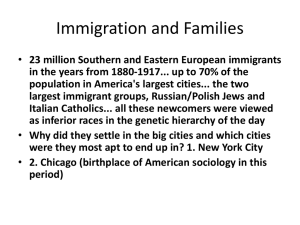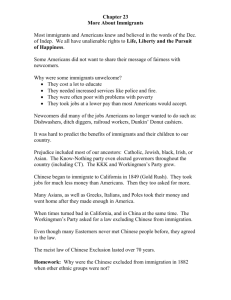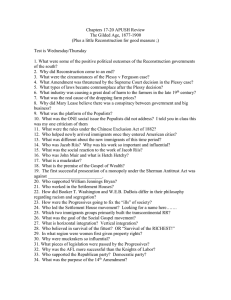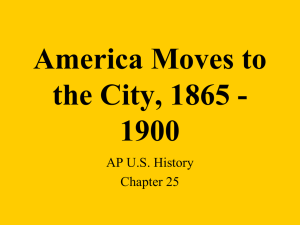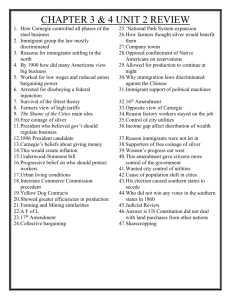Immigration – Populists – Progressives
advertisement
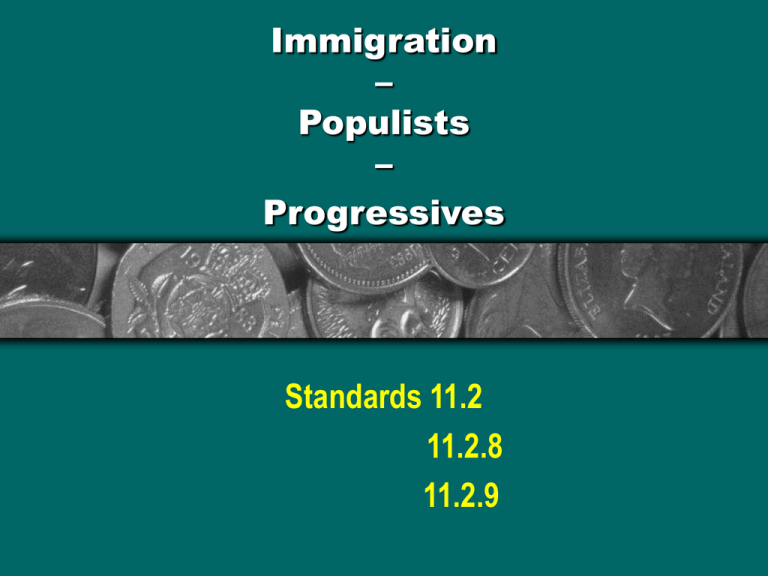
Immigration – Populists – Progressives Standards 11.2 11.2.8 11.2.9 Immigration 1860 - 1900 • Immigrants came to the industrial centers of the United States – • Worked for low wages Mainly from southern and eastern Europe – – Went through Ellis Island Settled in the North • • • – More major cities Greater educational opportunities More jobs Major reason why some immigrants were denied entry • They carried a contagious disease (show immigration clip)http://www.history.com/topics/ellisisland/videos#arrival-at-ellis-island Immigrant Supporters • Political machines (powerful politicians) provided them with jobs and other favors – Tammany Hall • • Provided for the welfare of immigrants and other city dwellers Immigrant would therefore vote for the politicians Immigrant Problems • Nativists – – • Immigrants major cause of urban problems Main objective was to restrict immigration Discrimination – – • Spoke different languages Had different customs Chinese – – Laws discriminated they accepted very low wages Chinese Exclusion Act – 1882 • Chinese laborers could not enter America Immigrant Urban Living Conditions • Tenements – – – – – Overcrowded and filthy apartments Threatened by unsafe living conditions Reflected ethnic cultures Disease due to poor sanitation Jacob Riis, in How the Other Half Lives, and Lincoln Steffens, in The Shame of the Cities • Exposing poverty and corruption in many U.S. cities Populists • Major third party movement – Farmers – William Jennings Bryan (leader) • 1896 presidential candidate • Major complaints – High tariffs on manufactured goods – Protested the bimetallic standard Populists • Major causes of change – Free and unlimited coinage of silver •It would create inflation – Highly productive farming and mining require expensive machinery Progressives • Emerged out the Populist movement • Government – protect workers – Businesses were subject to government control • Interstate Commerce Commission • Greater efficiencies in production (Model T) • Municipal reformers – Utilities controlled by the city Progressives • Tariff reform – Underwood Simmons Bill • Theodore Roosevelt – Strong National gov’t • Regulate business – National Park System • Managing federal lands • Conservation of natural resources • Recreational areas for the public – Breakup of several trusts deemed harmful to the public Progressive Amendments • 16th Amendment – Income Tax • 17th Amendment – Direct election of Senators • 18th Amendment – Prohibition of alcohol • 19th Amendment – Women’s right to vote – Originally granted in 10 western states
